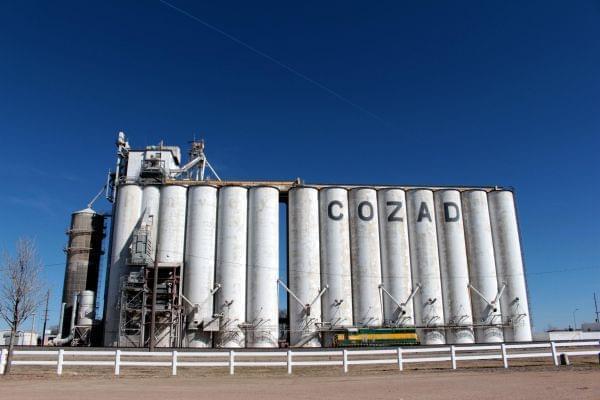Sweeping Changes To U.S. Tax Code A Mixed Bag For Farmers, Rural Hospitals

The tax reform proposal could benefit small-town businesses, but it could also undermine programs that support rural hospitals if the national debt grows. Grant Gerlock/Harvest Public Media
Many rural businesses and farms will benefit from the tax overhaul passed Wednesday by Congress. But there’s a catch: If the changes fail to spur economic growth as intended, programs that rural areas rely on could be on the chopping block.
One provision in the massive bill, which President Trump has yet to sign into law, allows small business owners to deduct 20 percent of their business income. It also expands the deduction for small business investment — a popular provision among farmers, who can write off the cost of things like a new tractor.
U.S. Agriculture Secretary Sonny Perdue praised the legislation, which includes a $1.5 trillion tax cut and changes the individual tax code.
“Having traveled through our nation’s heartland for most of this year, I know that the hard-working, tax-paying people of American agriculture need relief,” the Republican said. “Most family farms are run as small businesses, and they should be able to keep more of what they earn to reinvest in their operations and take care of their families.”
Business owners will have a limited time to enjoy their new tax perks, as most are set to expire by 2025 unless extended by Congress.
“That’s something we advocated for throughout this process is whatever you did, make it permanent,” said Jordan Dux, director of national affairs for the Nebraska Farm Bureau. “Unfortunately, that’s not how it ended up.”
Unless the tax cuts spur an economic surge as Republicans hope, $1.4 trillion will be added to the national deficit over a decade, according to the Congressional Budget Office. That could put pressure on lawmakers to cut spending, and considering the agriculture and nutrition policies in the farm bill are up for reauthorization in 2018, they could be the first to see cuts.
“That’s a big problem,” Nebraska Farmers Union President John Hansen said. “For infrastructure, for the (farm) income safety net, for research.”
The farm bill includes crop insurance subsidies, land-grant university research funding and rural business investment within its wide-ranging portfolio. Dux expects any cuts to farm bill programs to be focused on federal food assistance programs like SNAP (Supplemental Nutrition Assistance Program), which Perdue is already making changes to.
The tax legislation could negatively — and inadvertently — affect the rural health care industry, too. It repeals the penalty for not buying insurance under the Affordable Care Act, so if fewer people buy insurance, hospitals may end up providing more uncompensated care.
At the same time, an increase in the national debt could trigger automatic cuts to Medicare reimbursements, which rural hospitals are more reliant on than urban counterparts.
“There’s sort of this dual threat that Congress will cut other important health care programs in order to pay for these tax cuts,” according to Maggie Elewhany of the National Rural Health Association. “That would be devastating across rural America.”
Congress would have to vote to cancel the automatic cuts, she said.
Follow Grant on Twitter: @ggerlock
Links
- How Dollar General Is Transforming Rural America
- Keep It Local: Rural Foundations Encourage Designating Localities As Heirs To Stem Wealth Drain
- Trump Administration Moves To Alter Drug Discount Program That Many Rural Hospitals Rely On
- ‘Healthy Eating’ Facts And Fictions; Rural Homelessness; Women In Comedy Weigh In On Louis C.K.
- Vulnerable Rural Hospitals Face Tough Decisions On Profitable But Questionable Billing Schemes
- As Rural Counties Lose Obstetrics, Women Give Birth Far From Home
- To Survive, Rural Hospitals Need To Grow—But The Demographics Don’t Add Up
- Report: Obamacare Repeal Would Disproportionately Affect Rural Areas

